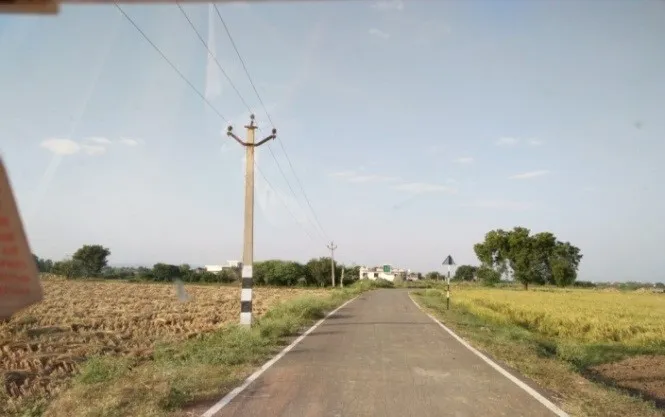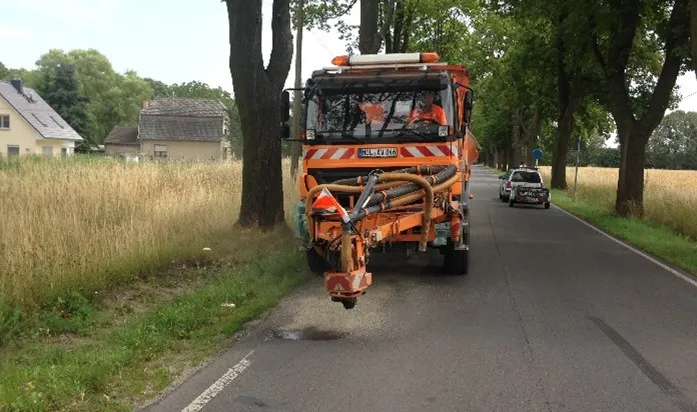Within years, one in six of UK local roads will need repairs or face closure, according to the latest Annual Local Authority Road Maintenance – ALARM - survey.
The cumulative effect of an ageing network, decades of underfunding, increased traffic and wetter winters has led to around 17% of all local roads reportedly in poor structural condition, with less than five years of life remaining.
The 22nd annual ALARM survey is a comprehensive study into local road maintenance funding and conditions.
Loca
March 27, 2017
Read time: 2 mins
Within years, one in six of UK local roads will need repairs or face closure, according to the latest Annual Local Authority Road Maintenance – ALARM - survey.
The cumulative effect of an ageing network, decades of underfunding, increased traffic and wetter winters has led to around 17% of all local roads reportedly in poor structural condition, with less than five years of life remaining.
The 22nd annual ALARM survey is a comprehensive study into local road maintenance funding and conditions.
Local authorities need at least nearly €14 billion to bring the network up to scratch – a figure that has remained largely unchanged for four years, according to the report. The gap between the amount local authorities received this year and the amount they say they need to keep their roads in reasonable order is almost €845 million.
Alan Mackenzie, chairman of the AIA, said that local authority highway teams lack the resources to arrest the decline in local road conditions. “Despite this, efficiencies they have achieved in recent years through adopting an asset management approach should be applauded.
“Working smarter, greater collaboration and improved communication are all contributing to their ability to do more with less, though of course there will come a point when there are no further efficiency savings to be found,” he said.
The report found that a large number of local authorities have also been hit with unforeseen costs - England: 43%; London: 53%; Wales: 56%. The primary reason is structural failures caused by adverse weather and increased traffic.
The number of potholes filled over the past year has dropped again for the second successive year, but is still high at 1.7 million – one repaired every 19 seconds.
The 2017 edition was completed by 63% of authorities responsible for roads in England and Wales and was carried out during January and February. The survey is commissioned by the1360 Asphalt Industry Alliance (AIA) which represents companies producing raw materials used in asphalt for roads and is collated, analysed and verified by an independent research company.
The full 2017 ALARM survey is available to download by visiting the website of the Asphalt Industry Alliance.
The cumulative effect of an ageing network, decades of underfunding, increased traffic and wetter winters has led to around 17% of all local roads reportedly in poor structural condition, with less than five years of life remaining.
The 22nd annual ALARM survey is a comprehensive study into local road maintenance funding and conditions.
Local authorities need at least nearly €14 billion to bring the network up to scratch – a figure that has remained largely unchanged for four years, according to the report. The gap between the amount local authorities received this year and the amount they say they need to keep their roads in reasonable order is almost €845 million.
Alan Mackenzie, chairman of the AIA, said that local authority highway teams lack the resources to arrest the decline in local road conditions. “Despite this, efficiencies they have achieved in recent years through adopting an asset management approach should be applauded.
“Working smarter, greater collaboration and improved communication are all contributing to their ability to do more with less, though of course there will come a point when there are no further efficiency savings to be found,” he said.
The report found that a large number of local authorities have also been hit with unforeseen costs - England: 43%; London: 53%; Wales: 56%. The primary reason is structural failures caused by adverse weather and increased traffic.
The number of potholes filled over the past year has dropped again for the second successive year, but is still high at 1.7 million – one repaired every 19 seconds.
The 2017 edition was completed by 63% of authorities responsible for roads in England and Wales and was carried out during January and February. The survey is commissioned by the
The full 2017 ALARM survey is available to download by visiting the website of the Asphalt Industry Alliance.







